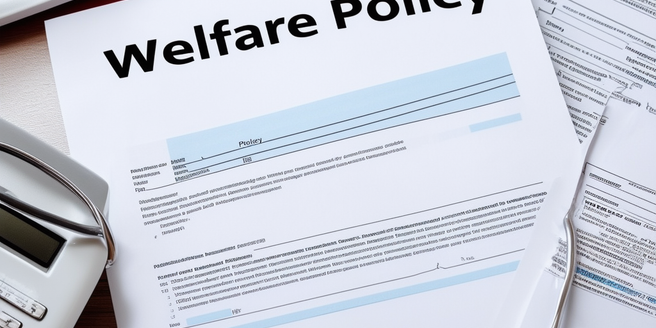Understanding the Connection Between Welfare and Healthcare
Welfare and healthcare are intrinsically linked through their collective aim of enhancing quality of life, as they mutually influence the overall physical, mental, and social condition of individuals. Viewed from two perspectives, healthcare can be considered a subset of welfare and simultaneously, an apparatus for achieving greater personal welfare. This implies they are not standalone entities but are interconnected, with developments or issues in one sector causing a ripple effect in the other. Understanding this co-dependence is essential to dissect their intertwined implications and their mutual influence when making policy and resource allocation decisions. Recognizing this complex relationship and the multi-dimensional approach needed to boost human well-being is vital, as changes in one directly impact the effectiveness and scope of the other.
Role of Welfare in Supporting Healthcare
Welfare systems play a crucial role in healthcare sectors, providing financial assistance to individuals unable to afford necessary treatments and serving as a safety net for economically disadvantaged individuals with health issues. They bridge the gap between high medical costs and an individual’s ability to pay, ensuring that healthcare services are accessible and affordable, eliminating financial barriers to receiving required medical aid. They foster a society where healthcare is not a privilege but a right. Rather than replicating social inequities, these welfare systems strive to equalize health opportunities and eradicate health disparities, promoting equal health outcomes for all, regardless of income or social background. Ultimately, they cultivate an egalitarian perception of healthcare accessibility, reinforcing that everyone deserves an equal chance to lead a healthy life.
The Impact of Healthcare Policies on the Welfare System
Healthcare policies are critically important in shaping our welfare system because they can influence its functioning in multiple ways. Effective healthcare services can ease the pressure on social care demands by preventing or resolving health-related issues before they escalate, thus reducing the need for further assistance from the welfare system. However, there can be situations where healthcare policies do not adequately cater to certain demographics or chronic illnesses, resulting in individuals not receiving the required care. In such cases, the welfare system must step in, potentially leading to strains on its resources, particularly when it assumes responsibilities typically handled by healthcare services, causing citizens to rely excessively on welfare support. This could create tension between the healthcare and welfare systems, underscoring the importance of robust healthcare policies that efficiently cater to all demographics and reduce dependence on welfare.
Case Studies: Welfare and Health Complementing Each Other
The link between effective welfare and health systems has been demonstrated by numerous cases, like the Nordic countries where harmonized efforts have produced high living standards and health conditions. This integration in countries like Sweden, Denmark, Norway, and Finland, has led to significant societal achievements. Focusing on quality healthcare and necessary welfare support has yielded positive health outcomes which are globally recognized.
Examining the smallest health disparities in these regions, it’s evident that their model of integration has greatly reduced such discrepancies. It sets an example of how healthcare disparities can be minimized via the right blend, showcasing one of the smallest health disparities globally.
This case highlights how integrating welfare and health system significantly contributes to societal quality of life. It underlines the importance of enhancing these two components to improve health outcomes and reduce health disparities among different population demographics. Learning from such examples can guide other countries towards improved health outcomes.
Challenges at the Intersection of Welfare and Healthcare
The intricate landscape of welfare and healthcare offers numerous challenges at its critical conjunction, a task of coordinating healthcare provision with appropriate welfare support. This area presents complex issues that tend to go beyond the superficial, often showing inconsistencies in the benefits a person receives, considering their specific conditions. It’s vital to understand these challenges are interconnected in a seemingly endless loop. Rising healthcare costs put a significant burden on finite welfare budgets, affecting funding of essential services, thereby stretching critical areas of welfare. On the other hand, inadequate healthcare provision can lead to increased demand for welfare support due to ineffective treatment, worsening conditions, or unavailable necessary services. This further strains the resources of an already overwhelmed welfare system. In conclusion, the delicate balance in this interconnected relationship between healthcare and welfare has significant reciprocal effects. Therefore a holistic approach is required to take into account this complicated intersection, providing solutions that are aware of these multi-dimensional impacts.
Looking Ahead: The Future of Welfare and Healthcare Integration
The merging of welfare and healthcare services is a promising future prospect aimed at personalized care for each individual. This integration not only underscores the need for customized health services and the mutual involvement of the two sectors, but also presents a united resource front for complex needs. The potential impacts are numerous, including improved health outcomes, increased efficiency, and savings on time, costs, and manpower. Ultimately, the most significant result could be an improved quality of life, with a more inclusive healthcare system enhancing satisfaction and well-being. This critical step towards global healthcare improvement aligns with the pursuit of healthier communities and individuals.



